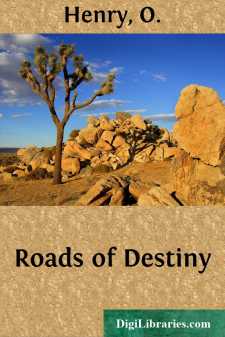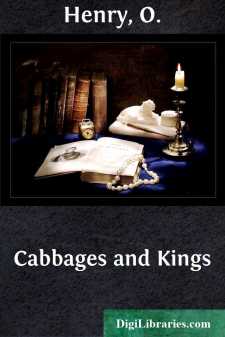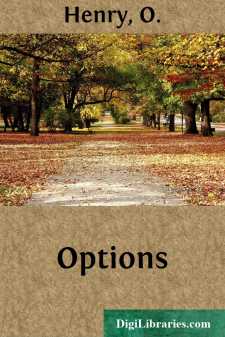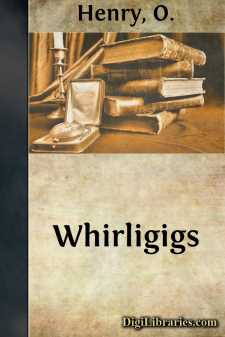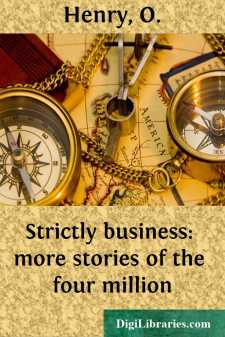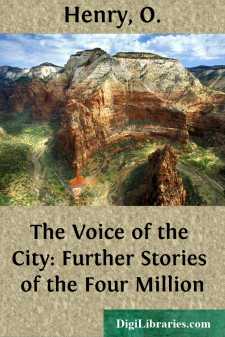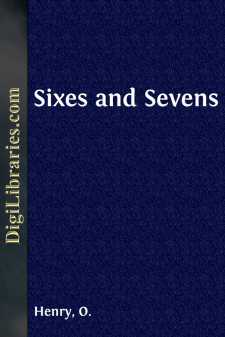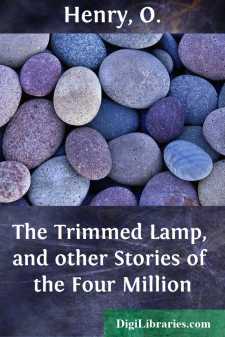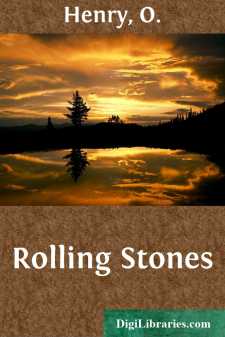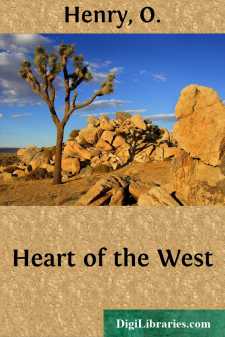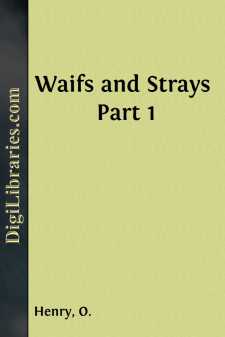Categories
- Antiques & Collectibles 13
- Architecture 36
- Art 48
- Bibles 22
- Biography & Autobiography 813
- Body, Mind & Spirit 142
- Business & Economics 28
- Children's Books 17
- Children's Fiction 14
- Computers 4
- Cooking 94
- Crafts & Hobbies 4
- Drama 346
- Education 46
- Family & Relationships 57
- Fiction 11829
- Games 19
- Gardening 17
- Health & Fitness 34
- History 1377
- House & Home 1
- Humor 147
- Juvenile Fiction 1873
- Juvenile Nonfiction 202
- Language Arts & Disciplines 88
- Law 16
- Literary Collections 686
- Literary Criticism 179
- Mathematics 13
- Medical 41
- Music 40
- Nature 179
- Non-Classifiable 1768
- Performing Arts 7
- Periodicals 1453
- Philosophy 64
- Photography 2
- Poetry 896
- Political Science 203
- Psychology 42
- Reference 154
- Religion 513
- Science 126
- Self-Help 84
- Social Science 81
- Sports & Recreation 34
- Study Aids 3
- Technology & Engineering 59
- Transportation 23
- Travel 463
- True Crime 29
Roads of Destiny
by: O. Henry
Description:
Excerpt
ROADS OF DESTINY
I go to seek on many roads
What is to be.
True heart and strong, with love to light—
Will they not bear me in the fight
To order, shun or wield or mould
My Destiny?
Unpublished Poems of David Mignot.
The song was over. The words were David's; the air, one of the countryside. The company about the inn table applauded heartily, for the young poet paid for the wine. Only the notary, M. Papineau, shook his head a little at the lines, for he was a man of books, and he had not drunk with the rest.
David went out into the village street, where the night air drove the wine vapour from his head. And then he remembered that he and Yvonne had quarrelled that day, and that he had resolved to leave his home that night to seek fame and honour in the great world outside.
"When my poems are on every man's tongue," he told himself, in a fine exhilaration, "she will, perhaps, think of the hard words she spoke this day."
Except the roisterers in the tavern, the village folk were abed. David crept softly into his room in the shed of his father's cottage and made a bundle of his small store of clothing. With this upon a staff, he set his face outward upon the road that ran from Vernoy.
He passed his father's herd of sheep, huddled in their nightly pen—the sheep he herded daily, leaving them to scatter while he wrote verses on scraps of paper. He saw a light yet shining in Yvonne's window, and a weakness shook his purpose of a sudden. Perhaps that light meant that she rued, sleepless, her anger, and that morning might—But, no! His decision was made. Vernoy was no place for him. Not one soul there could share his thoughts. Out along that road lay his fate and his future.
Three leagues across the dim, moonlit champaign ran the road, straight as a ploughman's furrow. It was believed in the village that the road ran to Paris, at least; and this name the poet whispered often to himself as he walked. Never so far from Vernoy had David travelled before.
THE LEFT BRANCH
Three leagues, then, the road ran, and turned into a puzzle. It joined with another and a larger road at right angles. David stood, uncertain, for a while, and then took the road to the left.
Upon this more important highway were, imprinted in the dust, wheel tracks left by the recent passage of some vehicle. Some half an hour later these traces were verified by the sight of a ponderous carriage mired in a little brook at the bottom of a steep hill. The driver and postilions were shouting and tugging at the horses' bridles. On the road at one side stood a huge, black-clothed man and a slender lady wrapped in a long, light cloak.
David saw the lack of skill in the efforts of the servants. He quietly assumed control of the work. He directed the outriders to cease their clamour at the horses and to exercise their strength upon the wheels. The driver alone urged the animals with his familiar voice; David himself heaved a powerful shoulder at the rear of the carriage, and with one harmonious tug the great vehicle rolled up on solid ground....


